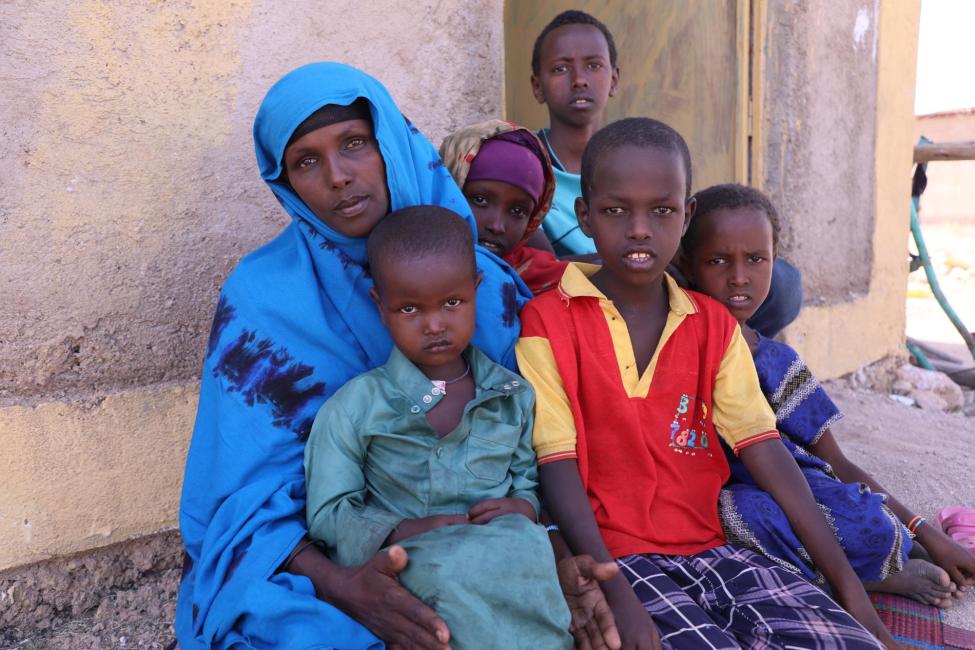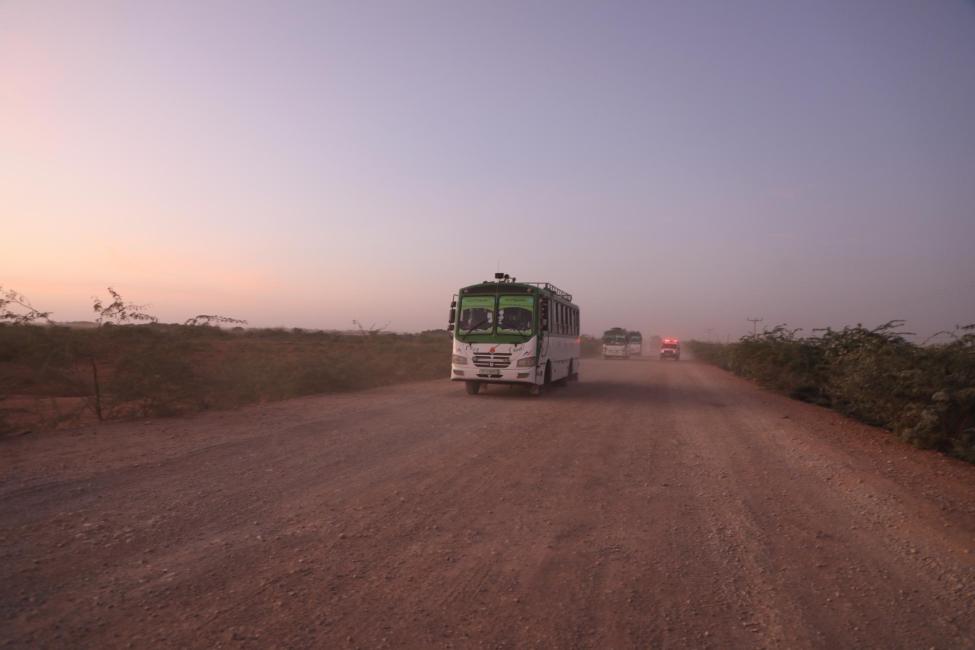Ethiopia: Somali Region Relocates Over 2,500 Displaced People to New Settlement in Somali Region
13 January, 2025
Gode, Somali Region, Ethiopia – In a significant step toward addressing internal displacement, the Somali regional authorities have successfully relocated 524 households, comprising of 2,570 individuals, from the overcrowded Qoloji IDP sites to a new settlement in Bayahow, Somali Region. This milestone, achieved through a collaboration between the Somali Regional Disaster Risk Management Bureau (DRMB), the International Organization for Migration (IOM), and other partners, is part of the country’s Durable Solutions Initiative (DSI).
The relocation, conducted in four phases since early December, culminated this week with the final movement of 132 households (662 individuals). The initiative focuses on voluntary and dignified transitions for displaced families while providing them with opportunities to rebuild their lives.
“This is more than just moving people. It’s about restoring dignity and creating opportunities for displaced communities to thrive,” said a senior DRMB official.

The Bayahow settlement has been equipped with essential infrastructure, including a health center, schools, water and sanitation systems, and community spaces. The host community has warmly welcomed the new residents, fostering a sense of unity and collaboration.
Each family was provided with housing, essential non-food items, relief assistance, and medical support. Hafid Abdirahman, one of the relocated individuals, expressed gratitude for the smooth process over the 620-kilometre trip: “We were well cared for during the journey and are excited about the opportunities here. With farming support near the Shebelle River, we can finally build a better future.”
The initiative goes beyond immediate resettlement by focusing on long-term sustainability. With support from the regional Agricultural Bureau and the UN Food and Agriculture Organization (FAO), plans are underway to help families start farming or restock livestock. Youth employment programmes and small business development initiatives are also being introduced to ensure economic independence.
The project is funded by the Swiss Agency for Development and Cooperation (SDC) and the Swedish International Development Cooperation Agency (Sida), highlighting a global commitment to finding durable solutions for displaced persons in Ethiopia.

Local leaders have also played a crucial role in ensuring smooth integration. “The host community’s acceptance has been incredible—100 percent,” said Abdu Ahmed Elmi, Shebelle Zone Early Warning Coordinator.
The success of Bayahow is being hailed as a model for future initiatives under Ethiopia’s DSI framework. “This progress shows that with planning, international support, and community involvement, we can create lasting solutions for displaced populations,” said an IOM representative.
As Ethiopia continues its efforts to address internal displacement caused by conflict and climate change, Bayahow stands as an example for sustainable solutions and rebuilding communities.
For more information contact Eric Mazango [email protected]
***
Source: This news article is authored by IOM Ethiopia and was originally published on their website.